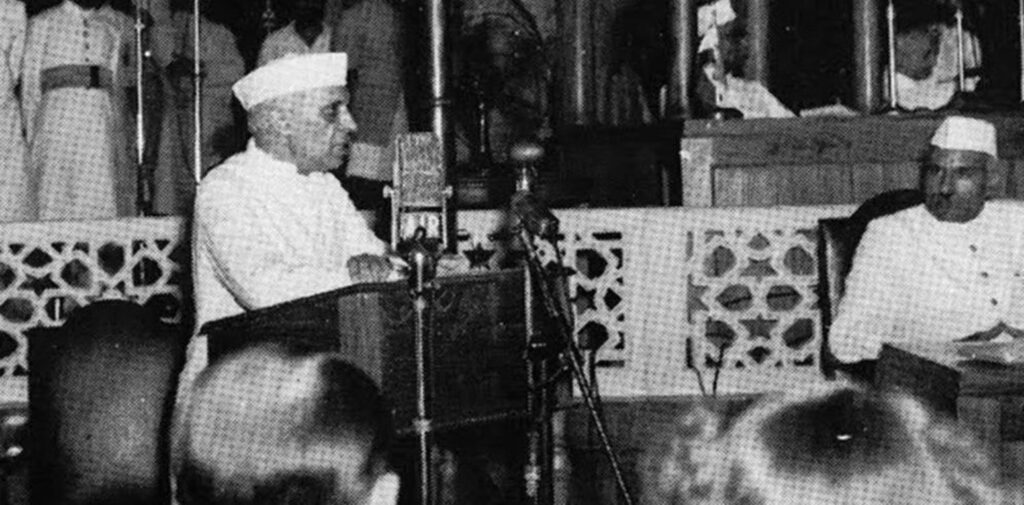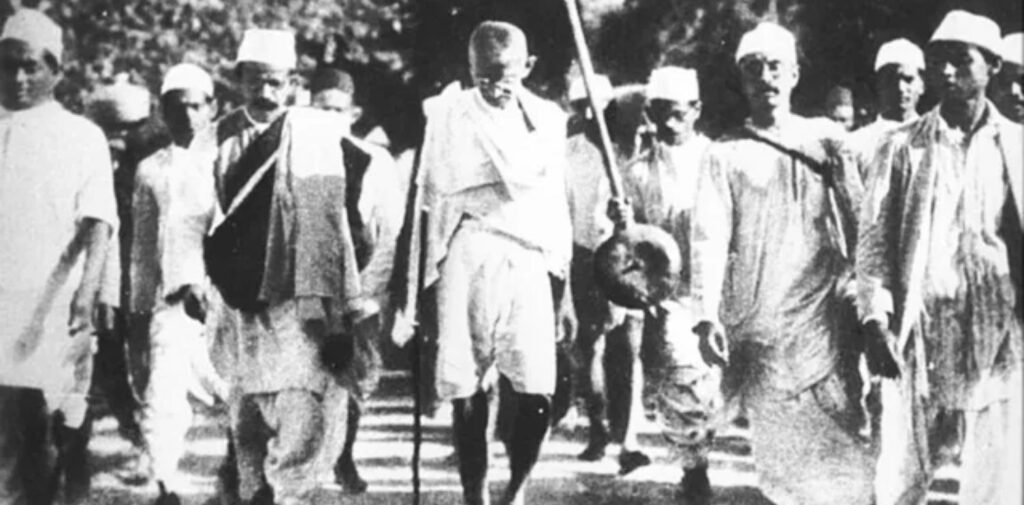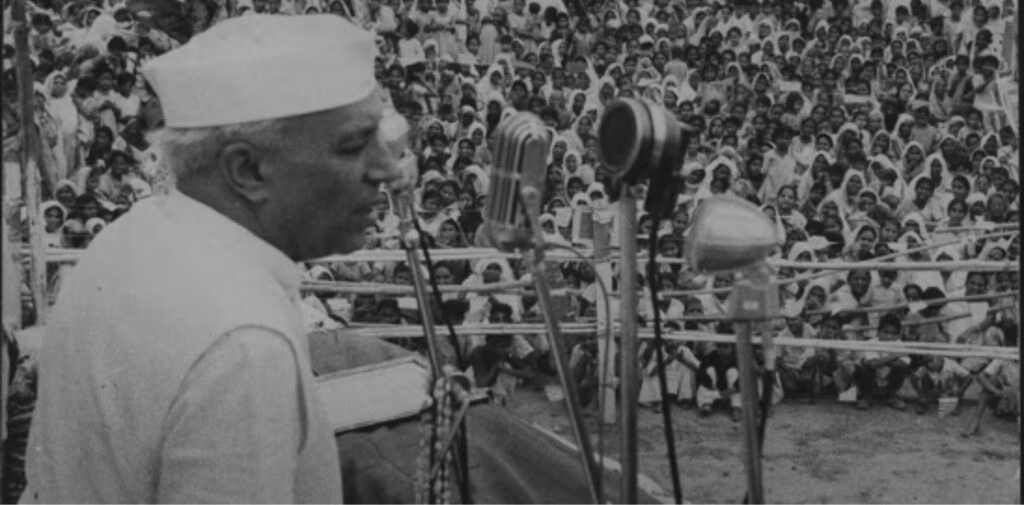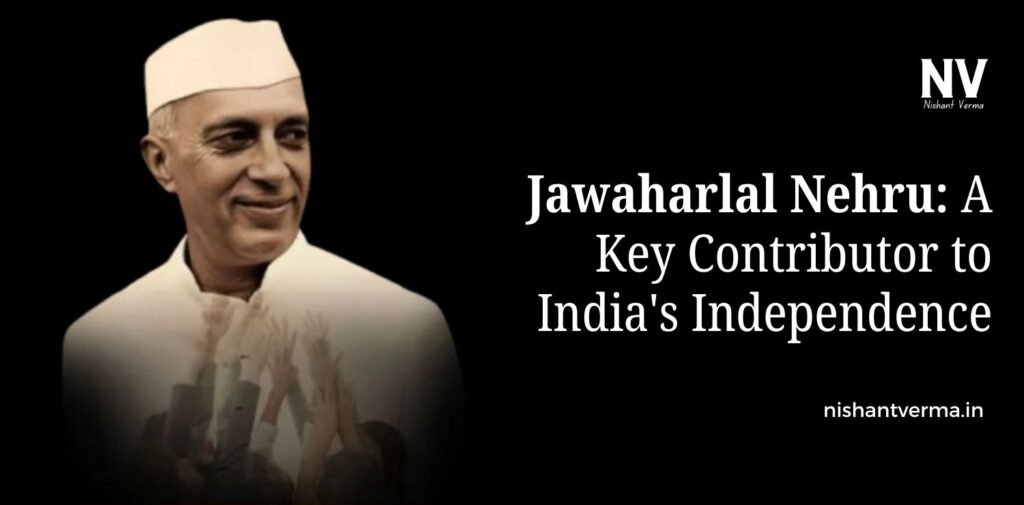Jawaharlal Nehru is one of the most significant figures in India’s struggle for independence. As the first Prime Minister of India and a prominent leader of the Indian National Congress (INC), Nehru played a vital role in shaping the direction of the Indian independence movement. His leadership, vision, and commitment to the cause of freedom helped India gain its independence in 1947, after nearly two centuries of British colonial rule.
This article explores the key contributions of Jawaharlal Nehru to India’s independence movement and how his ideas and actions made him one of the most respected and beloved leaders in the history of the nation.
Early Life and Introduction to Politics: Jawaharlal Nehru
Jawaharlal Nehru was born on November 14, 1889, in Allahabad, into a prominent and wealthy family. His father, Motilal Nehru, was a well-known lawyer and a key figure in the Indian National Congress. From an early age, Nehru was exposed to the political struggles of India under British rule. He received his education in prestigious schools in England and later studied at Cambridge University. Nehru’s exposure to the Western education system shaped his intellectual development, and he became deeply interested in the idea of liberty, equality, and social justice.
In the early 1910s, Nehru joined the Indian National Congress, initially under the influence of his father and other prominent leaders. However, it was his encounter with Mahatma Gandhi, the leader of the Indian independence movement, that transformed his political vision. Gandhi’s philosophy of non-violence and his fight against British colonialism inspired Nehru to become an active participant in India’s freedom struggle.

Leadership in the Indian National Congress (INC)
Nehru’s most significant contribution to the Indian independence movement was through his leadership within the Indian National Congress. He was deeply involved in the INC’s campaigns for self-rule, starting in the 1920s. While the INC was founded in 1885, it was under the leadership of figures like Gandhi and Nehru that it truly gained momentum and started to become a mass-based movement.
Nehru’s leadership was crucial in pushing the Congress to adopt a more radical stance against the British government. While early Congress leaders like Dadabhai Naoroji and Gopal Krishna Gokhale advocated for reforms and dialogue with the British, Nehru, along with Gandhi, advocated for complete independence from British rule. This shift marked a turning point in the Indian freedom struggle.
Nehru’s involvement in several major events of the independence movement demonstrated his commitment to the cause of freedom. He became one of the leading voices in the Quit India Movement of 1942, which was a call for immediate British withdrawal from India.
Influence of Mahatma Gandhi and the Non-Violent Struggle
Nehru’s political philosophy was heavily influenced by Mahatma Gandhi’s ideas of non-violence, truth, and satyagraha (peaceful resistance). Nehru and Gandhi formed a close bond, and Nehru considered Gandhi not only a political mentor but also a spiritual guide. Nehru’s belief in non-violence was tested on multiple occasions, as he participated in several campaigns led by Gandhi, such as the Salt March and the Civil Disobedience Movement.
While Nehru was a strong advocate for using non-violent methods to challenge British rule, he also believed that India needed a modern, industrial economy and an emphasis on science and technology. Gandhi, on the other hand, focused more on rural self-reliance and traditional values. Despite these differences, Nehru and Gandhi worked together towards the common goal of freeing India from British colonial rule.
During the Quit India Movement of 1942, when Gandhi gave the call for non-cooperation and mass protests, Nehru was arrested and imprisoned by the British. His imprisonment, along with many other Congress leaders, brought the Indian independence struggle to international attention and highlighted the unity of the Indian people against British rule.

Struggles and Sacrifices
Jawaharlal Nehru’s dedication to the cause of independence came at great personal cost. He was imprisoned several times by the British, spending a total of about 9 years in jail throughout his life. These years of imprisonment, however, only strengthened his resolve. During his time in prison, Nehru read extensively, wrote his famous autobiography, and reflected on the future of India.
In addition to his time in jail, Nehru also faced immense personal challenges, as his family was frequently affected by the turmoil of the times. His father, Motilal Nehru, was also deeply involved in the independence movement and, though not an active revolutionary, had to deal with the tensions of being part of a movement that was against the British. His mother, Swaruprani Nehru, played a key role in shaping his values. Nehru’s commitment to the cause was shared by many members of his family, and they, too, made personal sacrifices for the freedom struggle.
Through his sacrifices and determination, Nehru became a symbol of the Indian people’s fight for independence. His ability to remain steadfast despite personal losses made him one of the most respected leaders in India.
Nehru’s Role in the Second World War and the Quit India Movement
During the Second World War, India’s involvement in the war was seen as a tool for the British to keep India under control. The British needed India’s resources and military support for their war efforts, but the Indian people had no say in this decision. Nehru, along with Gandhi, called for the British to quit India and leave the country to its own people.
The Quit India Movement, launched in 1942, was a mass civil disobedience movement aimed at ending British rule. This movement marked a turning point in the struggle for independence. Nehru’s leadership during this movement brought the Indian National Congress closer to its goal of complete freedom. The British, facing mounting pressure from all sides during the war, began to see India’s resistance as a serious threat.
Despite the arrests of key leaders like Gandhi and Nehru, the Quit India Movement put significant pressure on the British Empire. The movement did not achieve immediate results, but it was a clear signal to the British that they could no longer continue their colonial rule over India. It led to increased global awareness about India’s struggle and further isolated Britain politically.

Vision for a Free India and the First Prime Minister
On August 15, 1947, India finally achieved independence after years of struggle, with Jawaharlal Nehru becoming the country’s first Prime Minister. Nehru’s vision for India was shaped by his desire to see a modern, secular, and democratic nation. His speeches, like his famous “Tryst with Destiny” speech, inspired millions and filled the hearts of Indians with hope for the future.
Nehru’s leadership in the early years of independence was focused on rebuilding a nation that had been ravaged by colonialism, poverty, and division. He introduced reforms aimed at promoting education, industrialization, and scientific advancements. Nehru believed in the power of science and technology to uplift the nation, and his government initiated several key projects to develop India’s infrastructure and economy.
Under Nehru’s leadership, India took its first steps as an independent republic and became a member of the global community. His dedication to the principles of democracy, secularism, and social justice set the course for India’s future.
Conclusion: A Legacy of Freedom and Nation-Building
Jawaharlal Nehru’s contributions to India’s independence are immense. His leadership, sacrifices, and dedication to the cause of freedom helped bring about India’s liberation from British colonial rule. Nehru’s vision for a free and prosperous India, combined with his commitment to modernity and social justice, shaped the future of the nation. As India’s first Prime Minister, Nehru’s role in laying the foundation for the newly independent country remains a cornerstone of India’s political history.
Nehru’s legacy continues to inspire generations of Indians, not only for his role in securing independence but also for his unwavering belief in democracy, secularism, and the development of India as a modern nation. His leadership in both the freedom struggle and post-independence nation-building makes him one of the most important figures in Indian history.




